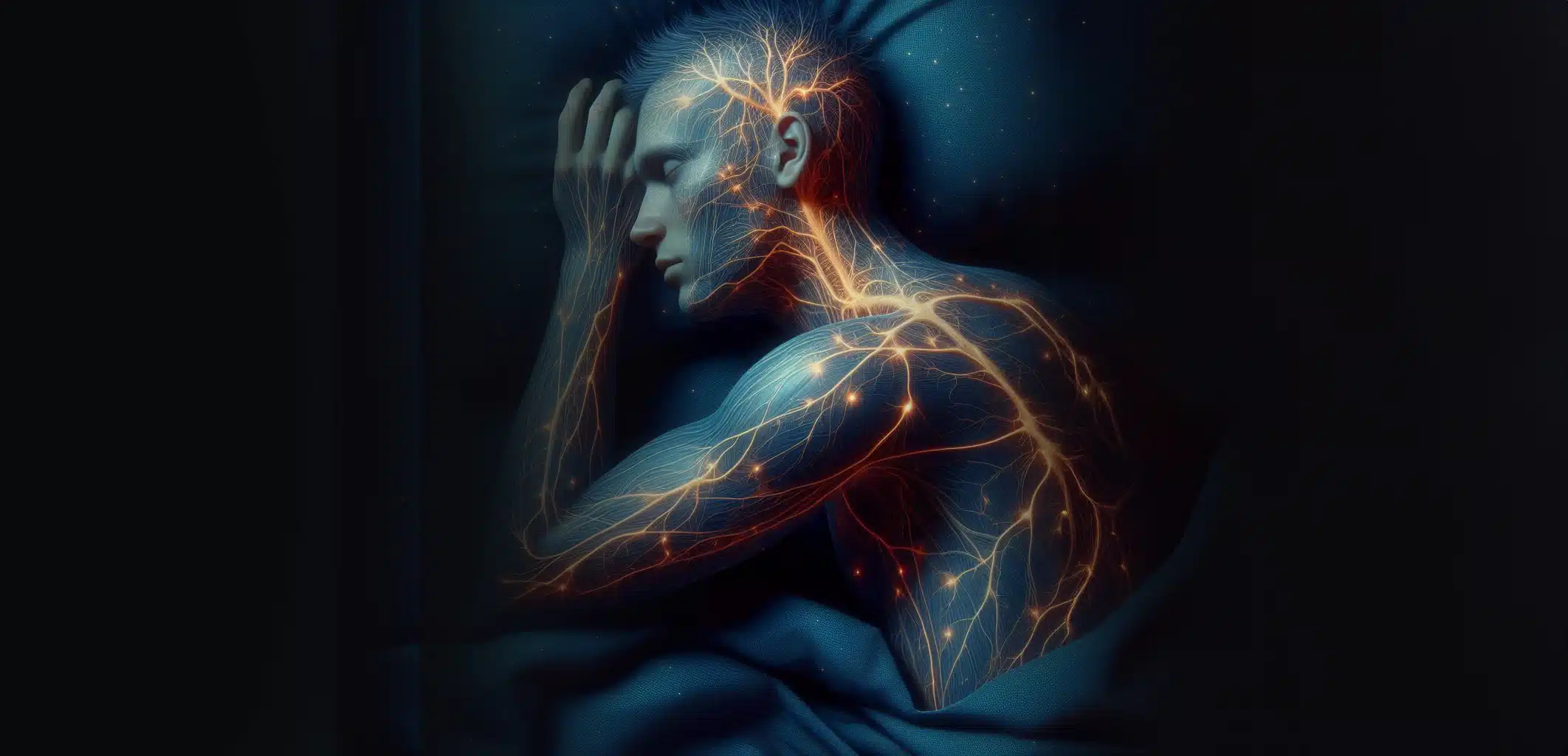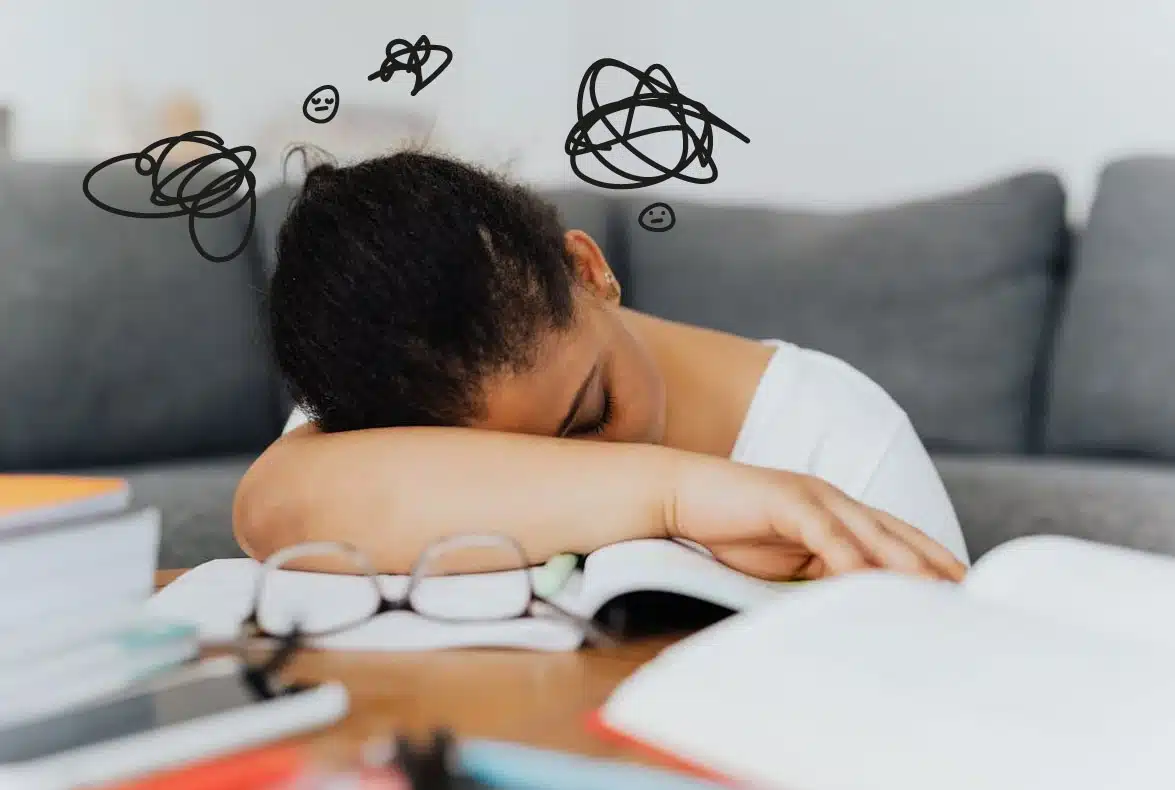Blog
The movement that changes lives

12-12-2023
Anxiety and stress: A case report
Symptoms of anxiety and stress
Alejandra is sitting on the comfortable sofa in her psychologist's office, with her eyes fixed on the floor and a worried look on her face. She doesn't know what to do with her hands, which are shaking. The silence is broken by a question:
- Alejandra, I know you've been going through some difficult times lately, do you want to tell me what's going on with you?
-Well, lately I feel like I've been caught in a whirlwind of emotions. My heart beats so fast that I think it's going to burst out of my chest. Sometimes I even feel short of breath, as if I'm trapped in an enclosed space with no escape. Most alarmingly, every night I wake up with a sharp pain in the pit of my stomach. The same pain at the same time, every night. Every night. What is happening to me?
-Thank you for sharing how you feel, Alejandra. It sounds like you are experiencing a number of symptoms related to anxiety and stress. It's important to know that you are not alone and that there are ways to address this. Have you noticed any other symptoms?
-I have, actually. I'm having trouble sleeping. I'm waking up in the middle of the night because of this sharp pain in the pit of my stomach and my heart is racing, like I'm having a tachycardia. I'm worried, I won't deny it.
-I understand you. Sleep problems are common in people experiencing anxiety and stress.
Does this dialogue resonate with you? Our story is fictional, but, paradoxically, it is a point of pain for millions of people.
Facts about anxiety and stress
The data provided by the World Health Organisation on anxiety and stress are overwhelming. Anxiety and stress disorders are the most common mental disorders in the world. In 2019 they affected more than 301 million people with a higher number of women than men.
What was once considered normal in everyday life has now become a worrying public health problem. Chronic anxiety and stress, if not managed properly, can lead to more serious problems such as depression.
What we mean by anxiety and stress
Stress is the body's natural response to situations of danger or challenge. When faced with a threat, our levels of cortisol, the stress hormone, rise to provide the energy and alertness needed to cope with the situation. This is a natural response of the human body's sympathetic nervous system.
However, in the so-called modern world, where anxiety and stress have become constant and rampant, these coping mechanisms have become a public health problem, affecting people of all ages and backgrounds. Chronically high levels of cortisol can have negative effects on our health, both physical and mental.
Our current lifestyle, with its constant demands, social and economic pressure, and daily exposure to social media, has created an ideal breeding ground for anxiety and stress. The good news is that there are effective strategies to address these challenges and improve physical and mental health.
True story: Tackling anxiety and stress symptoms with NESA® microcurrents
We started this post with Alejandra's story. A fictitious story about anxiety and stress symptoms. Now, we would like to introduce you to María José Jimeno, a patient of María González Physiotherapy Clinic, who has managed to recover her general health, thanks to complementing her treatments with NESA® Non Invasive Neuromodulation medical technology. This is an integrative treatment for all those medical disciplines in which the autonomic nervous system plays a fundamental role.
‘Someone who normally feels anxiety and stress, depression, sadness, is going to have consequences on their sleep quality, on their appetite. For me, NESA® medical technology has helped me. It makes you put things in their place and helps you to see the light’, says María José.
We invite you to listen to her full testimony and that of the physiotherapist, María González, in this real clinical case:
Real patient testimonial treated with NESA® Microcurrents
Tips to reduce the symptoms of anxiety and stress
Before we say goodbye let us share with you some tips to implement in your daily life that can be beneficial in reducing your anxiety and stress level:
- Practice daily meditation: Meditation is a relaxation technique that involves concentration and focus on the present. You can practice it anywhere and at any time of the day. Meditation helps reduce stress and anxiety by calming the mind and promoting relaxation. Spend a few minutes each day meditating and experience its benefits.
- Exercise regularly: Physical exercise is a powerful tool for combating stress and anxiety. When you exercise, your body releases endorphins, which are mood-enhancing neurotransmitters. In addition, exercise helps you release tension in your muscles and improve the quality of your sleep.
- Establish a healthy sleep routine: Getting enough sleep and having a regular sleep schedule are crucial to maintaining mental health. Avoid caffeine and screen time before bed, create a calm and relaxing sleep environment, and respect your sleep schedule to reduce anxiety and stress. If you have sleep problems we invite you to delve into NESA® advanced medical technology to improve this condition.
- Practice deep breathing: Deep breathing is a simple but effective technique to reduce stress. It consists of inhaling deeply through your nose, holding your breath for a few seconds and then exhaling slowly through your mouth. Repeat this process several times to calm your mind and body.
- Limit caffeine and alcohol intake: Too much caffeine and alcohol can increase anxiety and stress. Limit your intake of these substances and opt for healthier alternatives, such as herbal tea or water, to maintain a balance in your emotional well-being.
- Set limits on social media use: Excessive use of social media can contribute to anxiety and stress. Set limits on time spent on social media and disconnect from notifications when necessary. Prioritise in-person interactions and device-free time.
- Practice self-care: Self-care involves making time for activities that make you feel good about yourself: a walk on the beach, dancing in the rain, a relaxing bath, etc. Why not start with that activity we love so much that we always say, ‘I just don't have time for’? Finding your time becomes a priority. Self-care is essential to maintain emotional balance and reduce stress.
- Foster healthy social relationships: Positive social relationships are critical to mental health. Cultivate healthy friendships and family relationships. Sharing your worries and joys with others can provide emotional support and reduce feelings of loneliness.
- Set realistic goals: Setting realistic and achievable goals is essential to avoid overwhelming feelings of anxiety and stress. Break your goals into smaller, achievable steps, and celebrate your achievements as you go along. This will help you stay motivated and reduce anxiety and stress. And, from time to time, take a look back to see what you have achieved so far.
- Consider professional therapy: Therapy or counselling with a mental health professional can be a valuable resource if you experience chronic anxiety and stress. A therapist can provide specific tools and strategies to address your concerns and improve your emotional well-being.
We cannot change the course of the world, but we can change certain things that are within our scope of action. Remember that if you are interested in our NESA® medical technology you can ask for more information, please contact us:
Are you a health professional? https://nesa.world/en/contact/
Are you a patient? Find your nearest clinic with NESA® medical technology.
Regaining control over your emotional well-being and living a fuller and more balanced life is possible.










